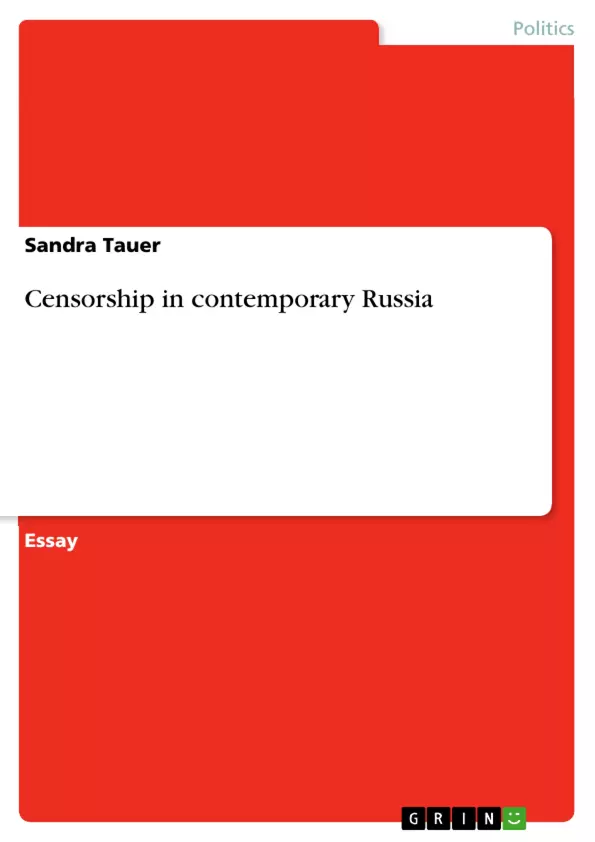In a crucial moment of transition in the late 1980s Mikhail Gorbachev came to power and began to liberalise the soviet political system. He allowed in the name ofglasnostseveral newspapers, literary journals and weekly magazines greater editional licence to criticise the Soviet system. Gorbachev’s glasnost gave birth to a new generation of independent-minded journalists. A law on the mass media gave the new Russian Federation a framework. The law was passed in 1991 and amended several times, and it is still one of the most democratic laws in the country. It guarantees everybody the freedom of thought and speech and the right freely to seek, transfer, produce and disseminate information by any lawful means. Article 29.5 forbids censorship and guarantees the freedom of the mass media. In 1991 Russian media celebrated this opportunity and most Russian press declared their independence from the state. Freed from censorship, new quality newspapers acted as a forum for debate of public issues and they took great pride in calling themselves the “fourth estate”. Papers like Nezavisimaya Gazeta or Independent Newspaper for example gloried in the freedom to act as a forum for discussions. The liberalization of television too began in 1990, when the state-owned Russian television station RTR was founded. RTR started broadcasting in spring 1991 and started to show its programs on the Second Channel.
Inhaltsverzeichnis (Table of Contents)
- Introduction
- Political reasons
- Economic reasons
- Sociological and historic reasons
- Conclusion
Zielsetzung und Themenschwerpunkte (Objectives and Key Themes)
This essay examines the reasons behind the current state of censorship in the Russian media system. It explores the factors that have led to a decline in press freedom, despite the passage of democratic laws in the early 1990s.
- The impact of political control on media freedom
- The role of economic factors in shaping the media landscape
- The influence of sociological and historical factors on press freedom
- The consequences of censorship on the diversity of ideas and public discourse
- The challenges faced by independent journalists in Russia
Zusammenfassung der Kapitel (Chapter Summaries)
The introduction highlights the initial promise of press freedom following the liberalization of the Soviet system in the late 1980s. It notes the passing of a law guaranteeing media freedom in 1991, but also points to the subsequent decline in press freedom, citing international rankings that place Russia low in terms of press freedom.
The first section, "Political reasons," examines the role of government control and pressure on independent journalists in shaping the media landscape. It discusses the murder of journalists, the lack of accountability in the judicial system, and the growing influence of the Ministry of Press in controlling media outlets. The section further describes three distinct periods of censorship in post-communist Russia, starting with a period of "soft persuasion" from 1991 to 1995, followed by a period of increased manipulation until 2000, and finally a period of stricter control after 2000.
Schlüsselwörter (Keywords)
The key themes of this text include media freedom, censorship, political control, economic factors, sociological and historical influences, independent journalism, and the Russian media system.
- Arbeit zitieren
- M.A. Sandra Tauer (Autor:in), 2006, Censorship in contemporary Russia, München, GRIN Verlag, https://www.grin.com/document/59612




